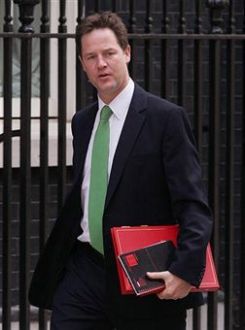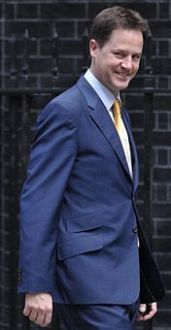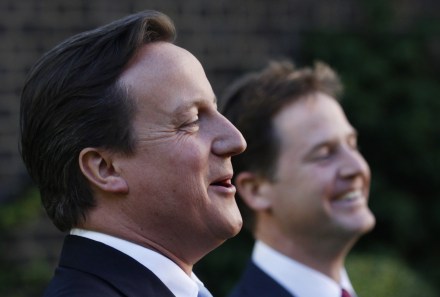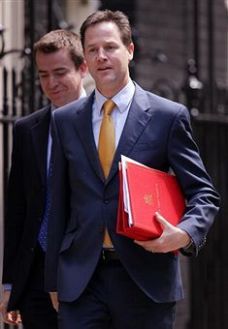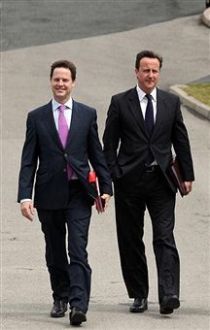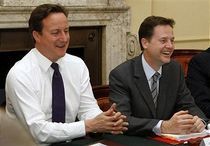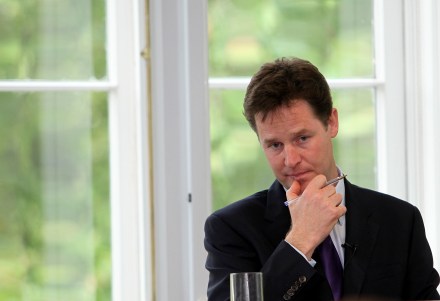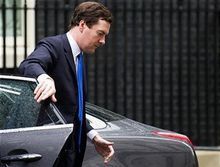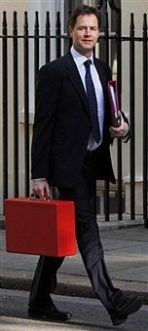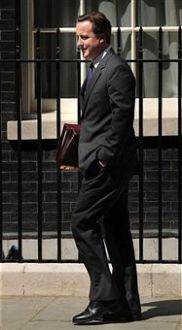Clegg believes
There’s an snappy little anecdote in Steve Richard’s column today, which bears repeating in these parts: “Clegg is in a similar position in relation to his party as Tony Blair was over Iraq. Blair used to go around telling his colleagues: ‘It’s worse than you think. I believe in the policy.’ Clegg is known to have told friends after George Osborne’s Budget: ‘The good news is I’m not a patsy. The bad news is I believe in the Budget.'” Nothing I’ve seen or heard over recent weeks has dented my opinion from before the election: that Clegg is, in relative terms, a fiscal hawk with a strong reformist bent. Indeed,
